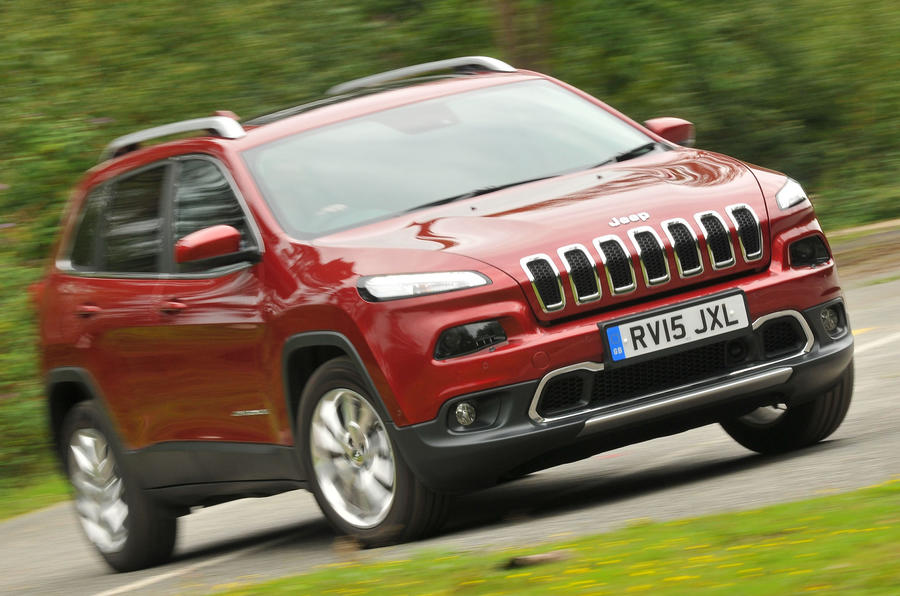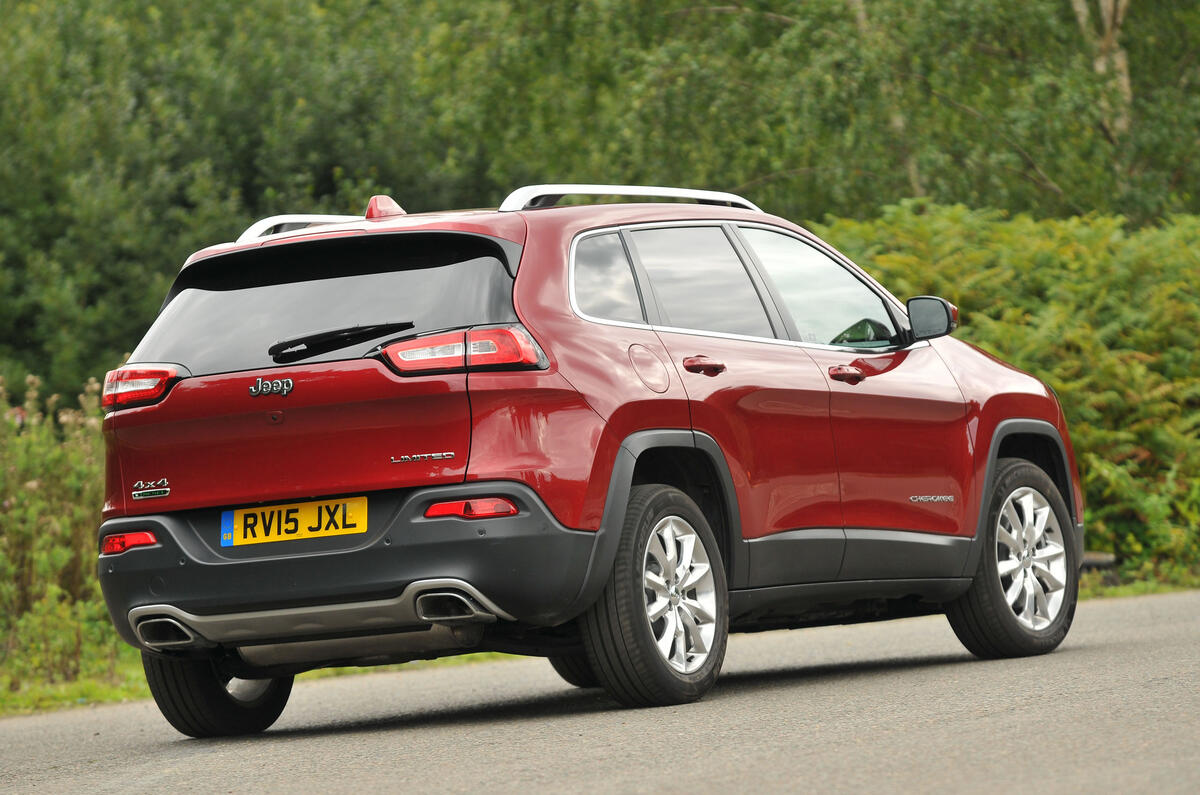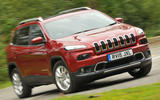Most Cherokees are powered by either a 138bhp 2.0-litre Fiat MultiJet diesel, or a 2.2-litre oilburner producing 183bhp and 197bhp, with the former fitted with a six-speed manual and a the latter a fuel-saving nine-speed automatic.
Chrysler’s petrol 3.2 V6 is only available in Trailhawk trim, which provides a tougher look and more off-roading hardware.
When Jeep describes the acceleration of the 183bhp turbodiesel as “lively”, you know not to expect too much from the entry-level 138bhp Cherokee. And so it proves.
At our test track, we managed to coax this 1950kg car to 60mph in 12.3sec. Okay, outright acceleration is not what these cars are about, but for £33,000 you can buy a BMW X3 that has a 3.0-litre diesel capable of covering the same benchmark in less than half that time, while emitting only 9g/km more CO2.
Things would look better for the Cherokee if its engine were comparable with the X3’s 30d unit in terms of refinement, but that’s not the case, either. We’ve recently thought BMW’s 2.0-litre diesel a bit grumbly, but even so, it’s not as outspoken as the Cherokee’s Fiat-sourced common-rail unit.
It’s not the overall volume that’s the problem (a 47dB idle and 64dB volume at 70mph are both respectable); it’s just that the noises that are allowed through are those of top-end diesel clatter rather than general gruffness.















































